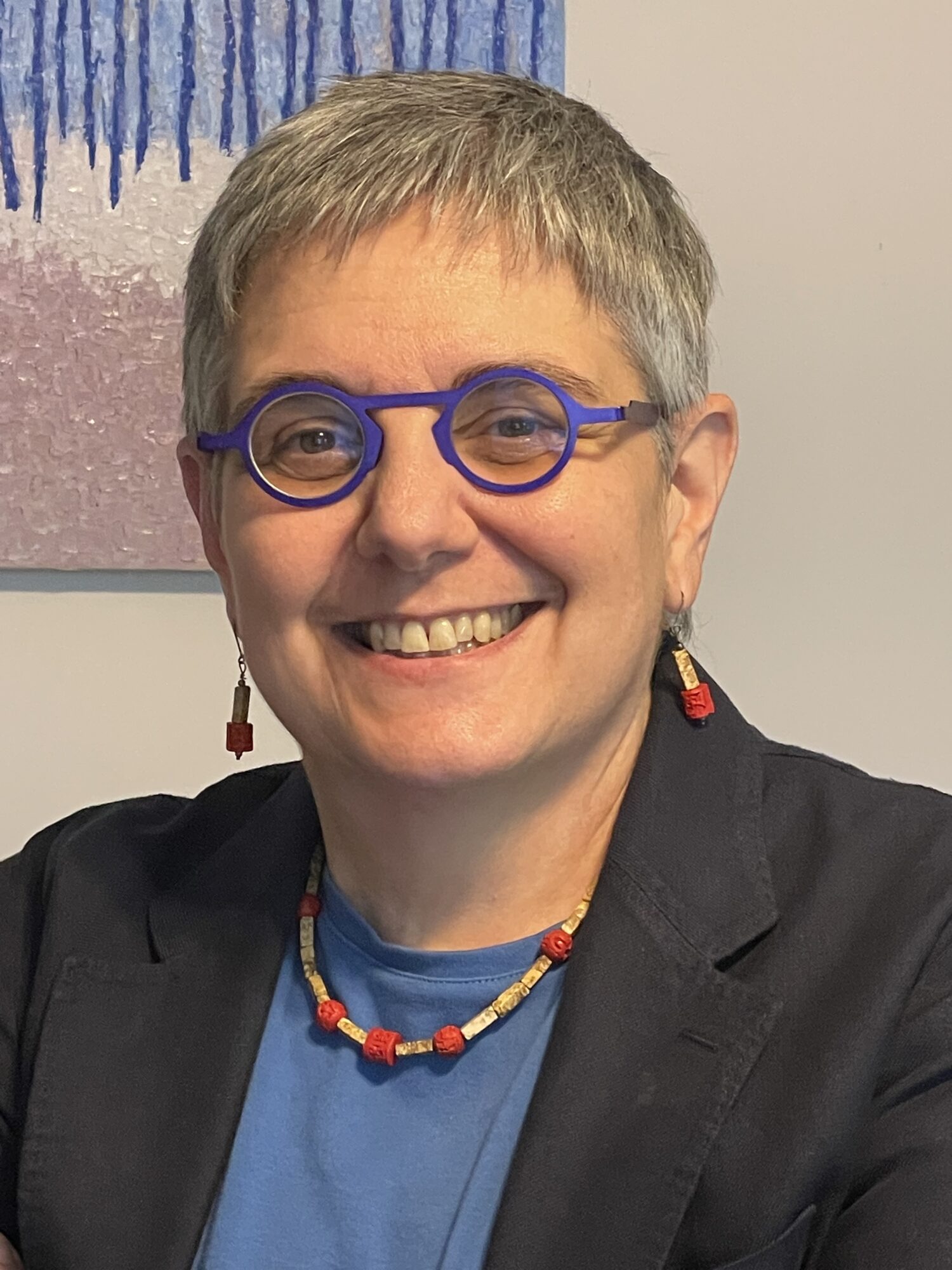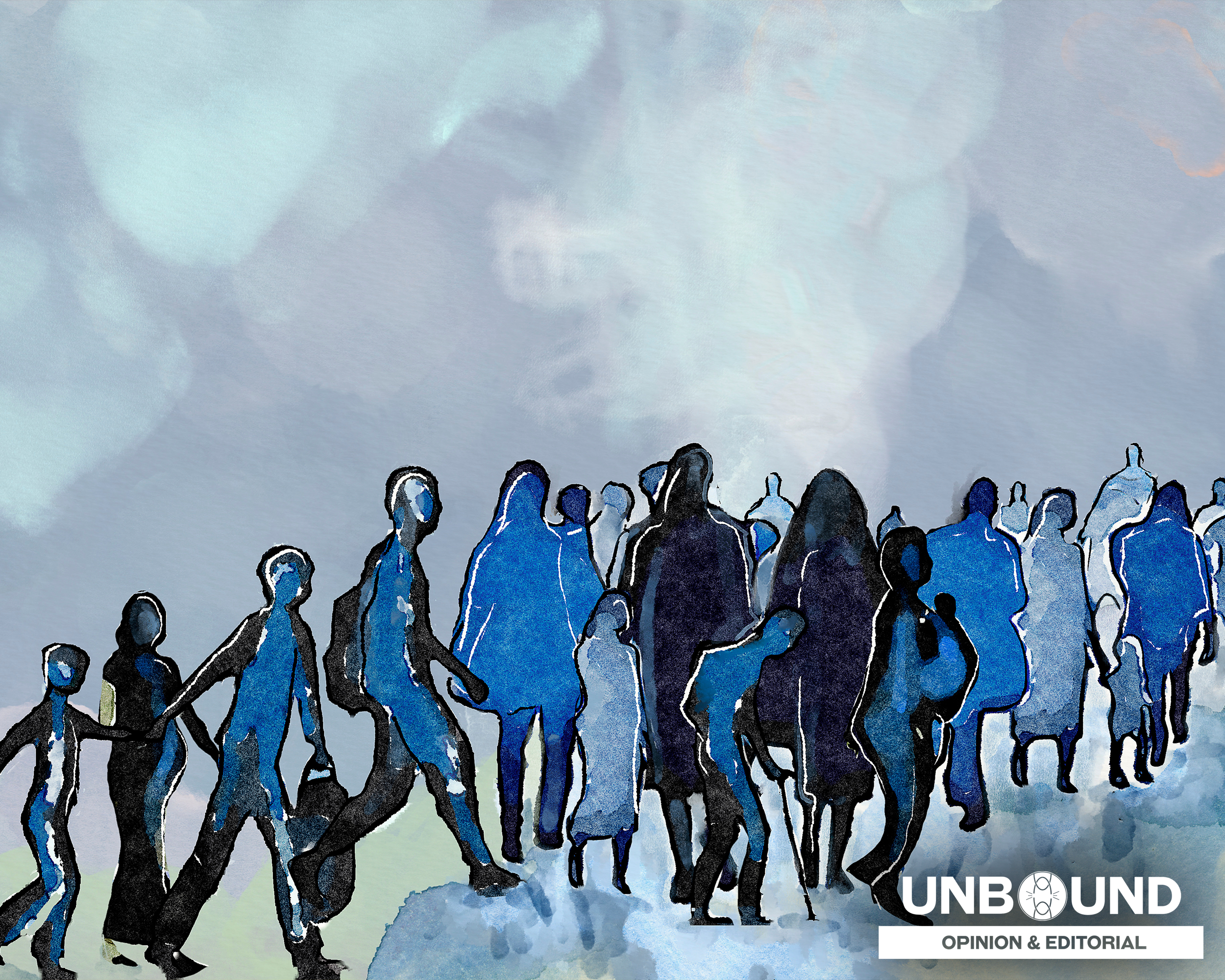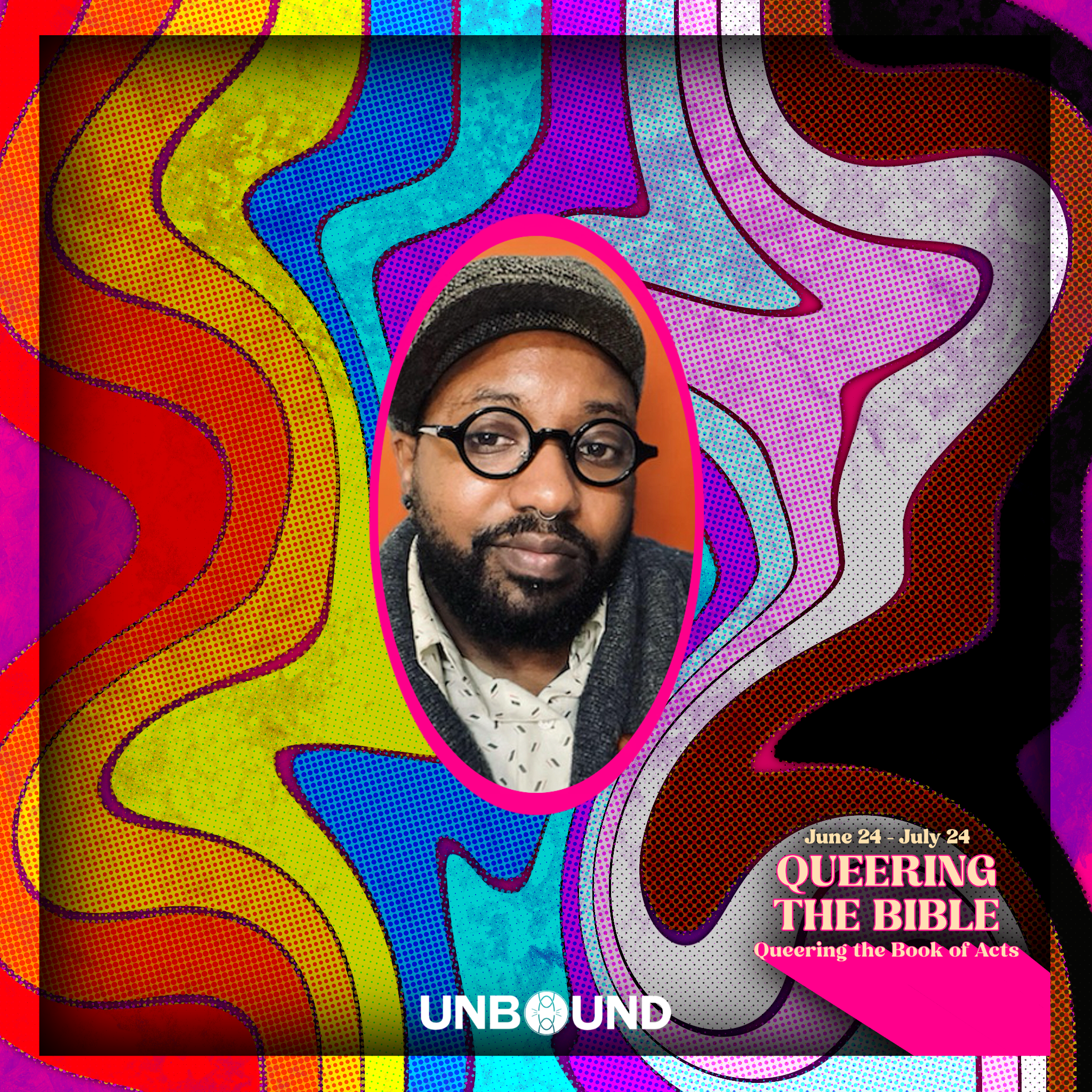Trusting the Queer Truth of What We See and Feel
Acts 5: 27-39
As queer people, how do we live and thrive in a time of religious, political and societal backlash? To challenge the social structures that oppress queer flourishing, we need to both continue to witness to the truth of our lives and partner with allies on the inside who can push structures of power that exclude us.
The story of Peter and the Apostles on trial before the Sanhedrin and Rabbi Gamaliel’s support of them is just such an example. It is a story of the testimony of a marginalized group that violates religious and social norms and the people in power who advocate for them. Reading the story through the queer lens of our lives reveals a fundamental survival skill: trusting the truth of what we see in our lived experiences as well as what we feel in our hearts—in all of its wonderful queerness—empowers our lives in openness and strength. It also reveals another important survival skill. Living in openness and authenticity is an important strategy we have to communicate with those who want to remain in relationship with us despite their lack of understanding, fear and judgment about our lives. The witness of the queer truth that we live can help our allies to move from their negative assumptions to one of acceptance and advocacy. Both strategies are necessary for our empowerment.
In ACTS 5: 27-39, Peter and the Apostles are on trial in front of the Sanhedrin for “teaching in the name.” What exactly are they accused of doing? They are teaching about Jesus and the salvation offered though his death and resurrection; furthermore, as a testimony to this truth, they are healing the sick and infirmed in the name of Jesus. When the Sanhedrin demands that they stop their work, they refuse, saying that they must obey God and not a human authority. They bolster their argument with a remarkable claim: they are the witnesses to Jesus’ resurrection and “so is the Holy Spirit.” In effect they are saying that the Holy Spirit has authorized them and called them to preach about Jesus and they must obey that command even if it means disobeying traditional rules.
Enraged, the Sanhedrin wants to execute them. After having the Apostles removed from the room, Rabbi Gamaliel, a member of the council who was a respected teacher, intervenes and challenges the council members. He tells them to think more carefully about what they are reacting against and to look at the issue with more circumspection and depth. Pointing out other rebellions that have had no traction in the face of the death of their leaders, he advocates for the new movement:
“. . .keep away from these men and let them alone; because if this plan or this undertaking is of human origin, it will fail; but if it is of God, you will not be able to overthrow them—in that case you may even be found fighting against God!” He sees something in the Apostles testimony and actions that forces him to be open to the truth of what others see as unorthodox and blasphemous.
Gamaliel acts as an ally to this disruptive movement. His advocacy proved effective because the scripture tells us that the Sanhedrin were convinced by his argument and released the Apostles. Peter made his testimony with conviction and force. With the support of an ally on the inside, the religious ruling power made space to understand more fully the veracity of the movement.
Gamaliel was not sure himself about whether what he was seeing was a real expression of God’s action in the world, but he saw and felt enough of what was going on to be willing to test it out over time. He was willing to listen carefully with his heart and make judgments with his mind, seeking to find the presence of God in what he was experiencing. He was willing to trust the queer truth that he was witnessing.
As queer persons we understand this story viscerally. When we choose to live authentically, we often crash up against the established norms of the persons and institutions we love and who have loved us over years. In the face of their disappointment, disapproval, or condemnation, we find comfort in Peter’s witness. We must be accountable to the truth of our lives that we have come to understand rather than to the established beliefs that deny our experiences. We rely on and find comfort as well in the straight allies who push back against exclusion and make space for us, even if they do not totally understand the truth of our lives. The parents of trans and non-binary children who continue to love and support their children are important examples of this type of advocacy. Even in the midst of their own struggle to understand, these parents are acting as Gamaliel for their children. Their trust in the truth of what they see and feel about their children’s lives and their advocacy for them promotes inclusivity and justice for them and, by extension, for all of the queer community.
In my own life I have been blessed with family, friends and colleagues who have been “Gamaliel” to me—those who learned to trust the veracity of their lived experience in order to come to greater acceptance of my life and advocate in some way for me or other queer persons.
I remember an unexpected conversation that I had with my father in the midst of societal battles for legalized LGBTIQ+ marriages. At that point he was in his early 90’s and was living in an enhanced care facility. He was entering the beginning stages of dementia and had both moments of confusion and moments of clarity. In one such moment of relative clarity, struggling to communicate his thoughts to me, he asked me whether New York had begun to allow LGBTIQ+ marriages. I asked him why he wanted to know. He said something quite unexpected to me: “If it is legal, then you should marry her [meaning my partner of many years] because, if it’s legal, then it is okay.” When he first said it, I was irritated thinking that he just wants me to be “normal” so that I can be “respectable.” I’m sure that was present on some level. Afterall, this was a man who when he found out about the truth of my life (in the 1980’s) asked if I could be “fixed.” It was only later as I was reflecting on this conversation that I remembered something else he had said to me on another occasion. He told me that he was speaking to his brothers (my uncles) telling them that even though he did not understand my life, he had to admit that he liked my partner and saw us living a happy life together. He was letting people know that he had a different opinion now, and that he had seen enough of my life to trust its truth and bless it.
What made this change happen for him over the years? He made a journey from not accepting and not understanding to encouraging me to have my queer relationship publicly acknowledged. Two things made a difference. For one, although he was difficult in many ways, I never felt rejected by him. More importantly though, over many years as an openly queer person who was partnered and very out, he began to trust the evidence of what he was seeing and letting it challenge what he understood to be morally and socially acceptable. He may not have understood the word queer, but he came to accept my difference and affirm it. Over time, he had allowed himself to be changed and to embrace a new stance even though it was not in line with the culture and time in which he was raised and his traditional Catholic faith.
What can we learn from the story of Peter and Gamaliel for our lives as queer persons? The most effective work for queer justice often requires both of their actions. We need, like Peter, to testify to the truth of our love and life. We also need strategic allies, who like Gamaliel, advocate for us in places where we are excluded. Both strategies are needed to dismantle unjust structures. We need queer persons who can stand firm, to be who they are in whatever way they can manage, to resist injustice, and we need straight allies who can push back against the established powers and structures in which they have access, pushing them to listen more to our lives and their authenticity, and demand justice. When we resist unjust structures that disempower us, we need both the disruptive push of Peter and the disruptive pull of Gamaliel as strategies for our empowerment and flourishing.

Kathleen T. Talvacchia (she/her) is a contextual theologian with interest in practical theology, Christian practices of marginalized communities, and Queer theology. She was previously Associate Professor of Ministry and Theology at Union Theological Seminary and Associate Dean for Academic and Student Affairs at New York University Graduate School of Arts and Science. Most recently she authored Embracing Disruptive Coherence: Coming Out as Erotic Ethical Practice (2019) and co-edited Queer Christianities: Lived Religion in Transgressive Forms (2015). In addition to her scholarly work, she is a conflict resolution facilitator and a spiritual director in the contemplative tradition.



Unbound Social